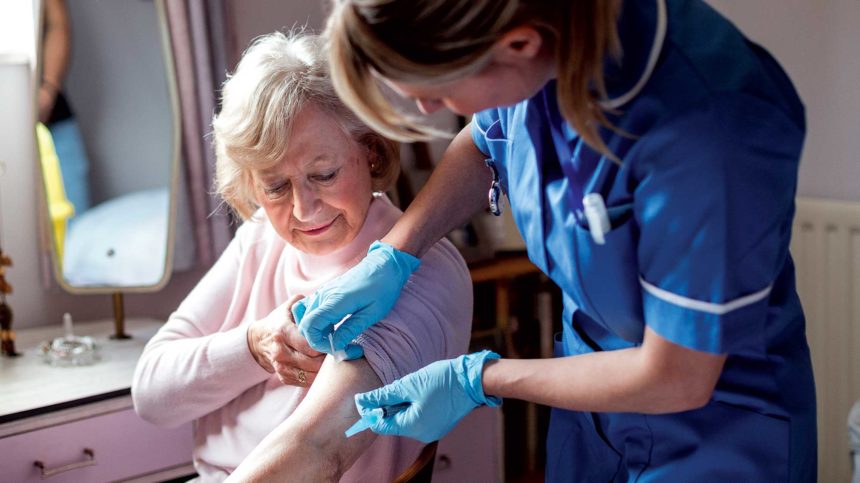
A U.S. government agency has dropped its 2014 recommendation that all adults aged 65 and older receive two pneumonia vaccines in a series, but a leading senior health advocacy group says the move could lead to more illness.
The Center for Disease Control and Prevention’s Advisory Committee on Immunization Practices this Wednesday recommended that the decision to be vaccinated with pneumococcal conjugate should now be shared by physician and patient. However, it continues to advise that all adults in this age group receive the other vaccine, pneumococcal polysaccharide, and that immunocompromised adults receive both vaccines in a series.
In response, the National Association of Nutrition and Aging Services Programs said the change may cause confusion and lead to an uptick in pneumonia. “We have concerns that this change will result in more seniors contracting pneumococcal disease. Each year, approximately 18,000 Americans die from pneumococcal disease and its complications,” it wrote.
Long-term, the change may lead to reduced Medicare coverage and lack of access, NANASP suggested. “[ASIP’s vote] represented a disappointing compromise,” Bob Blancato, executive director of the NANASP, told McKnight’s in an email. “They went against a strong public sentiment reflected in comments made by their own liaison representatives and more than three quarters of comments sent to their portal to maintain their 2014 recommendation.”
For its part, ACIP states that there is limited public health benefit to using the pneumococcal conjugate vaccine among all older adults due to low disease rates as a secondary effect of children’s vaccinations. It continues to characterize the vaccine as “safe and effective.”
Pneumonia is the second most common cause of hospital admissions in the United States and is particularly dangerous for older adults. Hospitalization for the disease has a greater risk of death than any of the other top causes of hospitalization, according to the American Thoracic Society.




